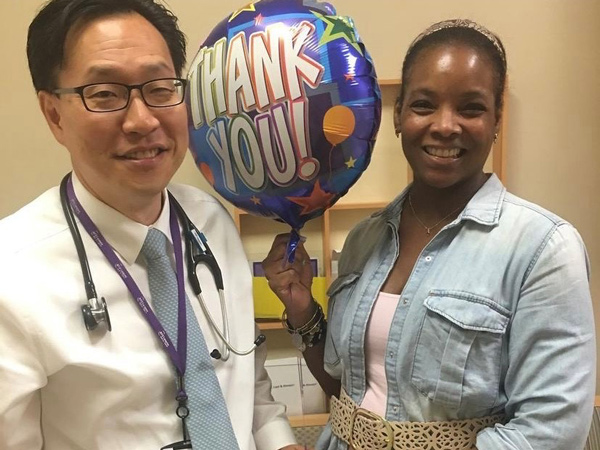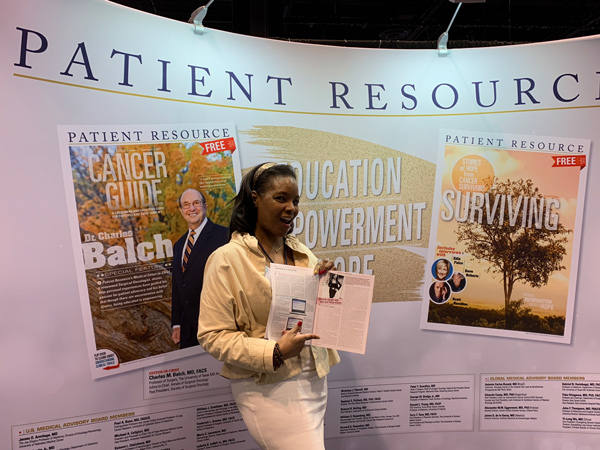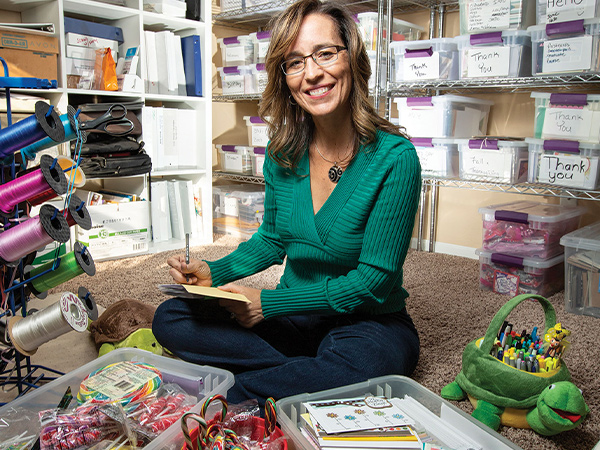Taking Patient Advocacy for Cancer Clinical Trials to a New Level
Triple-negative breast cancer survivor Karen Peterson shares a journey of empowerment, survival, and giving back to encourage people of color to participate in cancer clinical trials.
Karen Peterson, a 56-year-old New Yorker, knows about many of the barriers that lead to a low rate of participation by African Americans and other people of color in cancer clinical trials. When her triple-negative breast cancer metastasized, Karen advocated for herself and enrolled in a clinical trial that saved her life.
According to the 2020 Drug Trials Snapshots Summary Report by the U.S. Food and Drug Administration (FDA), only 5 percent of the patients participating in the clinical trials that led to the 18 new oncology drugs approved in 2020 were Black, while 73 percent were White.
Karen hopes to change that disparity by using her experiences to help other cancer patients of color consider participation in clinical trials. After her cancer spread, Karen conducted her own research and sought out multiple medical opinions that ultimately led her to a clinical trial.

“I just needed to feel like I was making an informed decision,” she said. “I know how lucky I am. I had a 4 percent chance of survival and a clinical trial actually saved me. I’m not rich. I don’t have a PhD. I’m self-taught and I want other people of color to know that access to groundbreaking clinical trials and access to science is obtainable.”
Karen shared her story of self-advocacy in the inaugural AACR Cancer Disparities Report. The report provides an extensive overview of the science of cancer health disparities and includes a list of recommendations to advance health equity. One of the report’s calls to action is to create initiatives to increase diversity in cancer clinical trials.
Today, Karen is working toward that goal as well.
She just completed a 2021 Blue Ridge Labs @ Robin Hood Fellowship. Fellows in the program work with residents of underserved neighborhoods in New York to create initiatives that address community needs. With that support, Karen co-founded Karen’s Club, a web-based initiative that offers one-on-one counseling for cancer patients of color to meet with patient advocates, who are also people of color and who have been through the clinical trials experience.
“In communities of color, there is a lot of fear and mistrust about clinical trials because of the previous medical crimes and atrocities that have happened to us,” she said. “It’s very important to have people from our community, who speak our language and who have been through it, to have rich, vulnerable, and honest conversations.”

Karen has been open in sharing her breast cancer experience with her three nieces. As she reflects on her journey and her path to survival, she is thankful that she is still here to give her own family members advice and help guide other patients of color.
“When I was attempting to get into a clinical trial, I can remember thinking that I want to stay alive. I want to see my family members graduate. I want to see them walk down the aisle. I want to be there for their milestones,” said Karen.
“I want others to be able to have the same outcome. So that is why I am going to keep on doing what I do.”
Return to AACR Stories Home

